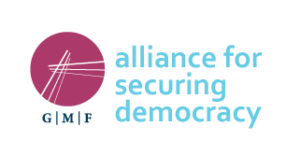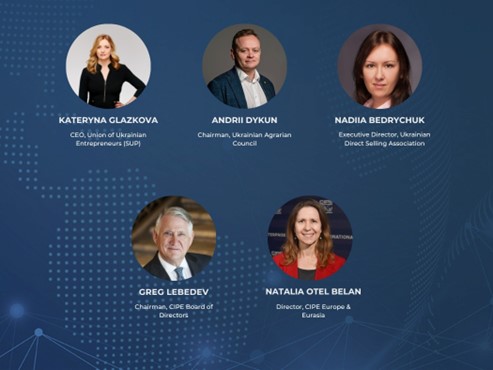Putin’s regime cannot win the war in Ukraine, but it may put its own future at risk, says Jan Kallberg, an Assistant Professor at the U.S. Military Academy and a Scientist in the Insider Threat Research program. The longer the war continues, the chances of regime change increase. Either way, Russian media is banging the drum about a long war, and so preparing the population for lower living standards, scarcity, and hardship in the coming years. And, of course, many more combat deaths, he writes for the Center for European Policy Analysis (CEPA):
For Russians with any doubt about state propaganda, it will now be obvious that the economic costs of funding a war with too little productive capacity are enormous. The undersized economy is already apparent for the soldiers on the frontline, made plain by intermittent logistics and deteriorating competitiveness on the battlefield, older equipment, and the artillery’s shell famine.
 The West should raise the costs of Russia’s Ukrainian invasion on multiple fronts so as to ensure that Kyiv wins the war, which will in turn impact Moscow’s strategic position in Syria and its partnership with Tehran, The Washington Institute’s Anna Borshchevskaya, a former NED Penn Kemble fellow, writes for the Middle East Forum.
The West should raise the costs of Russia’s Ukrainian invasion on multiple fronts so as to ensure that Kyiv wins the war, which will in turn impact Moscow’s strategic position in Syria and its partnership with Tehran, The Washington Institute’s Anna Borshchevskaya, a former NED Penn Kemble fellow, writes for the Middle East Forum.
After a year of war in Ukraine, China and Russia have grown closer together in the information space, often parroting each other’s talking points across state-owned media as part of a wider strategy to undermine the West, according to a yearlong study from the German Marshall Fund’s Alliance for Securing Democracy. Messaging by Chinese officials and media evolved to provide greater “rhetorical cover for the Kremlin” despite Beijing’s official stance as a neutral party in the conflict.
“There has definitely been a pro-Russian convergence, and China has been repeating pro-Russian talking points since the beginning of the war while also downplaying Russian war crimes and giving prominence to Russian voices,” Etienne Soula, a research analyst with the Alliance for Securing Democracy and one of the report’s authors, told RFE/RL.
 “To weaken Western democracies and their allies, China also has tried to isolate those countries by appealing to the Global South,” the report states. “In the context of the war in Ukraine, Chinese messaging has consistently argued that countries supporting Ukraine are hypocrites and indifferent to the rest of the world.”
“To weaken Western democracies and their allies, China also has tried to isolate those countries by appealing to the Global South,” the report states. “In the context of the war in Ukraine, Chinese messaging has consistently argued that countries supporting Ukraine are hypocrites and indifferent to the rest of the world.”
What is Russian opposition leader Alexei Navalny’s position on Ukraine – and Crimea in particular?
More than just a re-packaging of Navalny’s anti-war messaging, in this context the “15 theses” represent a notable evolution of his position on Ukrainian territorial integrity and a significant departure from his standard ambiguity on the Crimea issue, The Moscow Times reports.
 How to hold Russia’s top leadership accountable for the crime of aggression against Ukraine? United for Justice asks (above). Bring the illegally deported Ukrainian children home? Protect the survivors of conflict-related sexual violence? Enforce compensation for the damage caused to Ukrainians, the state, and the environment at the expense of the aggressor? How do we act in a coordinated and effective manner to ensure the inevitability of punishment for all these heinous crimes? The world’s leading legal experts will seek answers to these and other questions. In Ukraine. At the United for Justice conference. Developing a web of accountability for international crimes and building a global coalition for justice. Join online at #U4J.
How to hold Russia’s top leadership accountable for the crime of aggression against Ukraine? United for Justice asks (above). Bring the illegally deported Ukrainian children home? Protect the survivors of conflict-related sexual violence? Enforce compensation for the damage caused to Ukrainians, the state, and the environment at the expense of the aggressor? How do we act in a coordinated and effective manner to ensure the inevitability of punishment for all these heinous crimes? The world’s leading legal experts will seek answers to these and other questions. In Ukraine. At the United for Justice conference. Developing a web of accountability for international crimes and building a global coalition for justice. Join online at #U4J.
 Ukraine’s private sector is a driving force behind the country’s war efforts and visions for reconstruction, providing vital services and leadership. The Center for International Private Enterprise (CIPE) has been in Ukraine for 30 years and its Kyiv-based staff remains there to work closely with CIPE’s network of thousands of businesses, which represent nearly every sector in every region.
Ukraine’s private sector is a driving force behind the country’s war efforts and visions for reconstruction, providing vital services and leadership. The Center for International Private Enterprise (CIPE) has been in Ukraine for 30 years and its Kyiv-based staff remains there to work closely with CIPE’s network of thousands of businesses, which represent nearly every sector in every region.
CIPE hosts a virtual event on Wednesday, March 15 with Ukraine’s business leaders, as they discuss the private sector’s crucial efforts to help Ukraine defend itself and assist its citizens. They will answer questions about the current operating environment and articulate short-term and long-term private sector priorities for reconstruction, as well as their vision for a new Ukraine. RSVP

Garry @Kasparov63 predicted Russia’s war in #Ukraine back in 2014. Now, over a year since #Russia‘s invasion, he predicts Putin will fail. Find out why he is confident. Watch now! https://t.co/6Nua1EtVG7
— Renew Democracy Initiative (@Renew_Democracy) March 8, 2023







